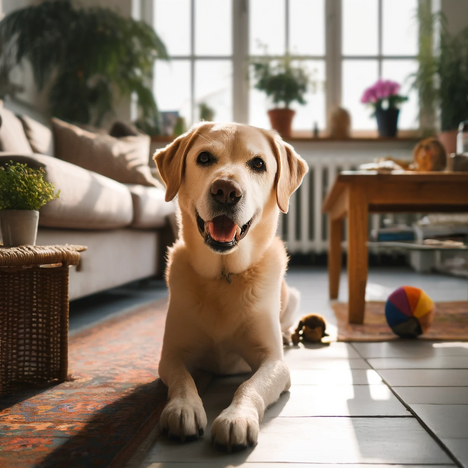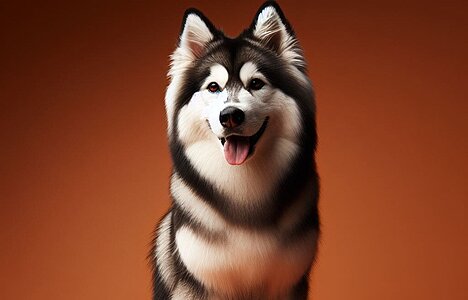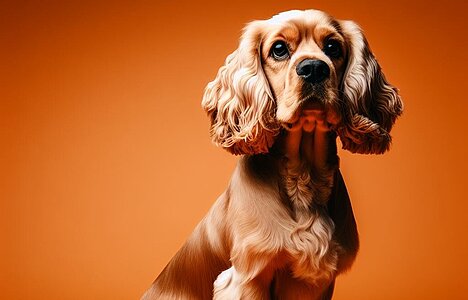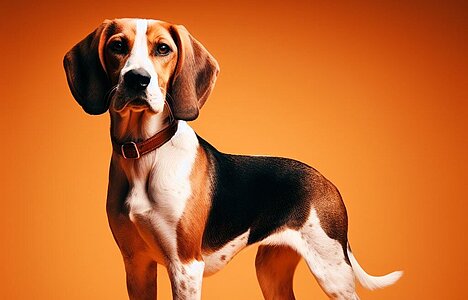Attribute "No tendency to drool"

Little drooling - a blessing for dog owners: everything you need to know
If you've ever had a dog, you know that drooling is a normal occurrence. However, there are dog breeds that tend to drool less, and this can make a dog owner's life a lot easier. Less drooling means less cleaning, less odor, and an overall more pleasant experience when dealing with your furry friend. In this article, we'll look at the importance of the 'no tendency to drool' trait in dog breeds and why this could be an important criteria when choosing your next dog.
What does "no tendency to drool" mean?
Definition and causes of drooling
Drooling in dogs is caused by the production of saliva in the salivary glands. While saliva plays an important role in digestion and oral hygiene, excessive drooling can be a problem. Some dogs have an anatomical predisposition that causes them to drool more, especially those with loose lips, such as bulldogs or St. Bernards. A "no tendency to drool" means that a dog breed is genetically less likely to produce or lose excessive saliva.
Anatomical characteristics
Dog breeds that drool less often have tighter lips, which hold the saliva better in the mouth. This anatomical feature prevents saliva from dripping uncontrollably from the mouth. Examples of this are the Poodle, the Shih Tzu and the Basenji. These breeds are known for their clean, dry mouths.
Advantages of a dog that drools little
Cleanliness and hygiene
A dog that drools less makes for a cleaner home. You don't have to constantly remove drool stains from furniture, floors or your clothes. This is particularly beneficial if you have children or simply appreciate a clean home. In addition, less drooling reduces the build-up of bacteria and odors associated with saliva.
Care and health aspects
Less drooling can also have health benefits for your dog. Dogs that drool constantly often have moist areas around the mouth, which can lead to skin irritation and infections. With a dog that drools less, you will have less to worry about. It's also more pleasant to groom and pet your dog without having to constantly wipe saliva off.
Social acceptance
Not everyone likes dogs that drool, and some people may even be allergic to dog saliva. A dog that drools less is often better accepted in social situations. You can take your dog out without having to worry about him drooling on guests or strangers.
Dog breeds that drool less
Small dog breeds
- Poodle: Known for its intelligence and hypoallergenic qualities, the Poodle drools little, making it ideal for households that value cleanliness.
- Shih Tzu: This charming little companion has tight lips and is known to drool very little.
Medium-sized dog breeds
- Basenji: Also known as the "barking dog", the Basenji hardly drools at all. Its tight lips help to keep the saliva where it belongs.
- Whippet: This elegant breed rarely drools and is known for its cleanliness.
Large dog breeds
- Doberman: Despite its size, the Doberman has tight lips and drools very little, making it a popular choice for people looking for a clean, large dog.
- Weimaraner: This majestic breed is not only an excellent hunting dog, but also drools less than many other large dog breeds.
Conclusion
The "no tendency to drool" trait can be a deciding factor when choosing your next dog, especially if you value cleanliness and hygiene. This trait offers numerous benefits, from a cleaner environment to health and social benefits for you and your dog. If you are looking for a dog that drools little, there are many breeds to choose from that have this trait. Whether small, medium or large, there is a four-legged friend to suit everyone.


